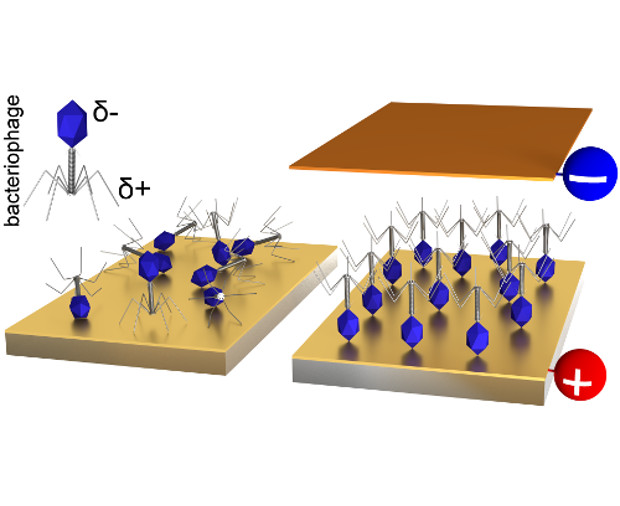
Rapid and reliable detection of pathogens with high sensitivity is important due to environmental and economic reasons.
The need for the new methods of detection of pathogens is most urgent in the area of public health.
Only in USA the nosocomial infections cause around 100,000 deaths per year.
Majority of them could have been avoided if the pathogens would be identified shortly after infection.
However, classical approaches are laborious; can take up to even 72 h.
Our research concerns a step towards a sensor for fast detection of bacteria.
Our sensors are based on layer of oriented bacteriophages (e.g. T4).
The sensitivity of biosensors increases four times for ordered over disordered layer of bacteriophages.
Proper orientation of bacteriophages prevents receptor binding proteins from being blocked.
For the purpose we utilize the electrostatic interactions upon application of different electric potentials to the surface on which phages are deposited.
Our method for preparation of phage-based sensor would be applicable for wide variety of the phage species.
As our method utilizes the natural properties of virions (i.e. dipole moment) it is not restricted to phages from the Myovirdae family, to which T4 bacteriophage belongs.
The described protocol can be easily applied to variety of bacteriophage species and thus extended to prepare biosensors sensitive to desired species or strains of bacteria.
Moreover, it is also applicable to all objects of non-zero permanent or induced dipole moment to form ordered layers at the conductive surfaces.